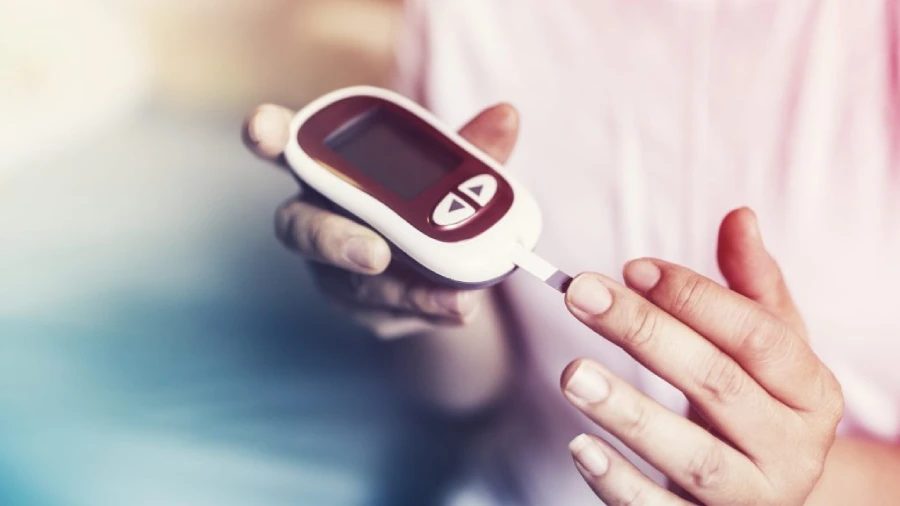Relation Between Erectile Dysfunction and Diabetes
Erectile Dysfunction (ED) and diabetes mellitus are two prevalent health issues that often coexist, creating a complex interplay between physical and psychological factors. ED refers to the consistent inability to achieve or maintain an erection sufficient for satisfactory sexual performance, while diabetes is a chronic metabolic disorder characterized by elevated blood sugar levels. The relation between Erectile dysfunction and Diabetes coexist due to various physiological and psychological reasons.
Physiological Mechanisms
Let us look at the physiological mechanisms that contribute to the condition.
Vascular Damage and Blood Flow Restriction
One of the primary physiological mechanisms linking diabetes and ED is vascular damage. Diabetes can cause atherosclerosis, a condition where arteries become narrowed and hardened due to the accumulation of plaques. This restricts blood flow, affecting the arteries in the penis. Limited blood flow to the penile tissues results in inadequate firmness during an erection, leading to ED.
Hormonal Imbalance
Diabetes can disturb the hormonal balance, impacting testosterone levels. Testosterone plays a crucial role in regulating sexual function, including the ability to achieve and sustain an erection. Low testosterone levels, often observed in men with diabetes, contribute to ED by reducing libido and impairing the physiological processes involved in erections.
Nerve Damage and Neurological Impairment
Diabetic neuropathy, a common complication of diabetes, affects peripheral nerves throughout the body. When nerves responsible for triggering and maintaining an erection are damaged, it can lead to ED. Neurological impairment disrupts the signals between the brain and the penis, hindering the natural response to sexual stimuli.

Psychological Factors
Below are the psychological factors associated with erectile dysfunction in men.
Anxiety and Depression
The psychological impact of diabetes, coupled with the challenges of managing a chronic condition, often leads to anxiety and depression. These mental health issues can exacerbate ED or even be the primary cause in some cases. Performance anxiety related to fear of inadequate sexual performance can create a self-perpetuating cycle of ED, further contributing to psychological distress.
Relationship Strain
The strain ED places on intimate relationships is significant. Partners may feel unattractive, unloved, or sexually unfulfilled, leading to emotional distance and strained relationships. The emotional toll of ED can exacerbate diabetes-related stress, creating a detrimental cycle that affects both partners’ well-being.
Prevention and Management
Let us discuss how one can prevent erectile dysfunction and manage the condition effectively once it has occurred.
Diabetes Management
Proper management of diabetes is essential in preventing or mitigating ED. Maintaining optimal blood sugar levels through medication, diet, exercise, and regular monitoring can minimize the risk of complications, including vascular and nerve damage, reducing the likelihood of developing ED.
Lifestyle Modifications
Adopting a healthy lifestyle can significantly impact both diabetes and ED. Regular physical activity improves cardiovascular health, promoting better blood flow and reducing the risk of vascular-related ED. A balanced diet, low in saturated fats and high in fruits, vegetables, and whole grains, supports overall health, including sexual function.
Medical Interventions
Several medical interventions can help manage ED in diabetic individuals. Oral medications such as sildenafil (Viagra), tadalafil (Cialis), and vardenafil (Levitra) are commonly prescribed to enhance erectile function. Vacuum erection devices, penile implants, Alprostadil injections, and psychotherapy are other viable options, depending on the severity of the condition and individual preferences.
Final Thoughts
Understanding the intricate relationship between diabetes and ED is crucial for effective prevention and management. A holistic approach that addresses these conditions’ physiological and psychological aspects is essential. By managing diabetes effectively, adopting a healthy lifestyle, and seeking appropriate medical interventions, individuals can enhance their overall quality of life and maintain a satisfying sexual relationship, promoting physical and emotional well-being for themselves and their partners.

